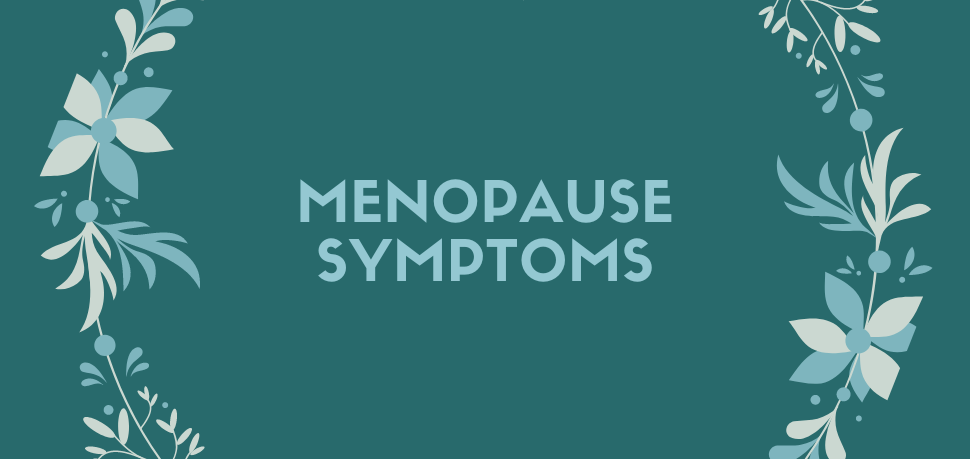Menopause Symptoms

Ever wondered why you were experiencing hot flashes in your 40’s? Or why you randomly wake up at night drenched and having to change the sheets? Why do you always feel like your moods are constantly changing?
Menopause, also known as “The Change”, is often times misunderstood and rarely discussed. Most women know about hot flashes and night sweats that come with “The Change”, but may not understand why and what can be done about it. They also can be taken off guard when these symptoms happen before menopause. We often think of these symptoms happening only in menopause, but have you heard of Perimenopause?
Perimenopause is the time in a woman’s life where your estrogen levels start to shift. Initially the only sign of perimenopause may be a change in your periods. They may be longer or shorter than normal, more or less frequent, or may become heavier or lighter than before. These changes can start in your late 30’s & 40’s. Perimenopause can last 5-10 years before a woman becomes officially menopausal. Period changes are common in perimenopause but it is still important to discuss these changes with your provider to make sure there is not another more serious cause.
Menopause is defined by the natural cessation of a woman’s periods. The average age women reach menopause is 51 years old, though this can occur earlier or later in life. Your ovaries stop making estrogen which is a hormone that controls your cycle. It is this lack of estrogen that causes a progesterone/estrogen imbalance, thereby causing a variety of symptoms. These symptoms can be experienced in both the perimenopause and menopause phases of life. The most common symptoms experienced during this time include: hot flashes, night sweats, mood changes, vaginal dryness, weight gain, increased frequency of vaginal and bladder infections, and painful intercourse. This is not an inclusive list as many women experience other less common symptoms.
If you are experiencing symptoms that impact your quality of life know there are treatment options available. The first line of treatment is hormone replacement therapy (HRT) which includes estrogen and, if you still have your uterus, progesterone. If you have had a hysterectomy you can be treated with estrogen alone to help relieve your symptoms. Another line of treatment is a group of antidepressants known as selective serotonin reuptake inhibitors (SSRI). These medications are most helpful in the treatment of hot flashes, night sweats, and mood changes. There are also a variety of localized vaginal treatments to help with vaginal dryness and relieve painful intercourse.
It is important you discuss any symptoms that are affecting your daily life with your provider. They can help you select the safest treatment option available to improve your quality of life and make your symptoms manageable.
“The Change” is a part of life but your symptoms don’t have to be.

SHARE